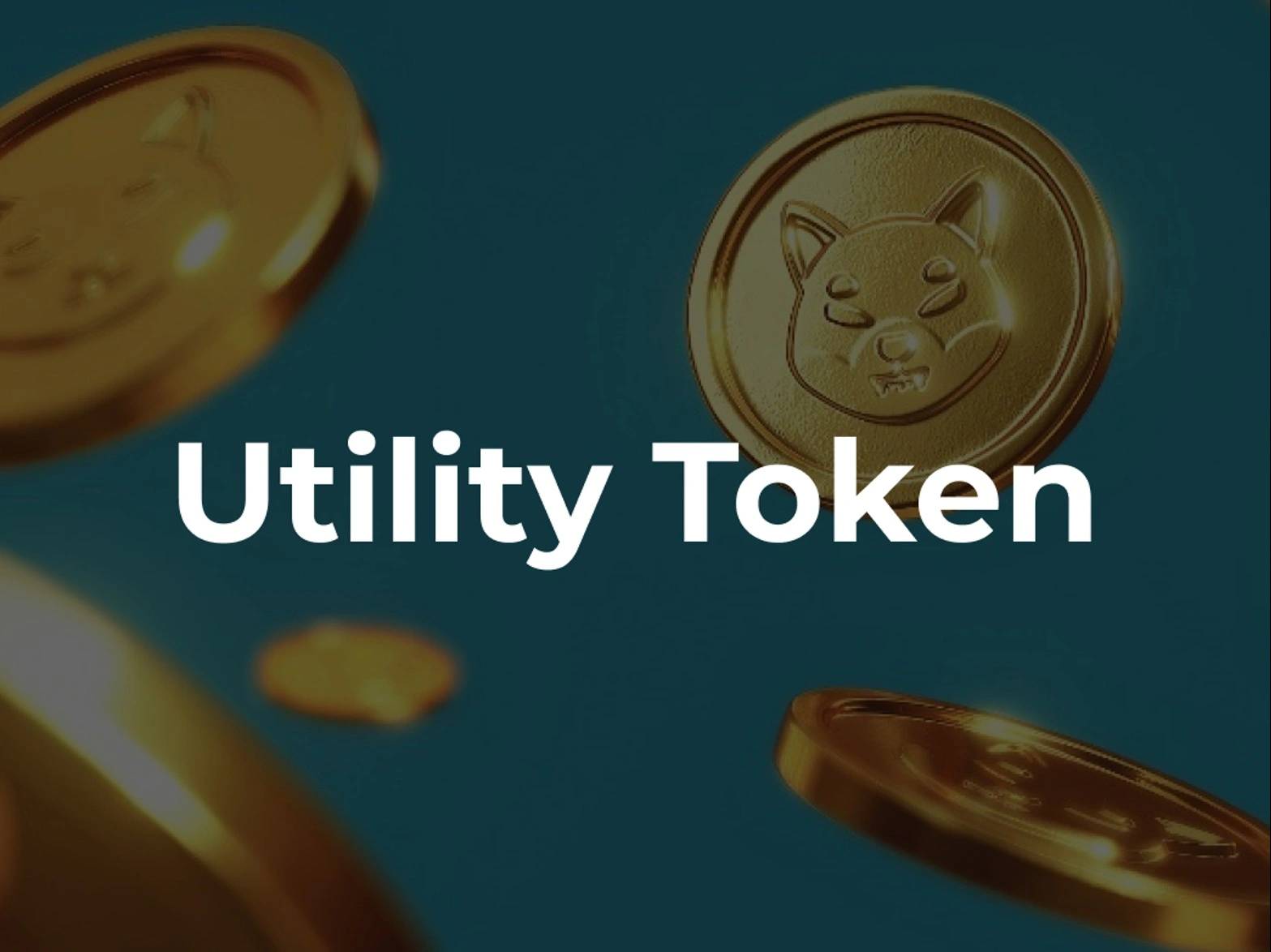위키 구독하기
Share wiki
Bookmark
Utility Token
에이전트 토큰화 플랫폼 (ATP):에이전트 개발 키트(ADK)로 자율 에이전트 구축
0%
Utility Token
유틸리티 토큰은 블록체인에서 생성된 디지털 토큰으로, 네트워크 또는 플랫폼 내에서 특정 목적을 위해 사용됩니다. 투자 가치를 나타내며 엄격한 규제 조사를 받는 보안 토큰과 달리, 유틸리티 토큰은 사용자에게 제품 또는 서비스에 대한 액세스를 제공하도록 설계되었습니다. [1][2]
개요
유틸리티 토큰은 특정 생태계 또는 플랫폼 내에서 고유한 가치를 지니는 디지털 자산 유형입니다. 주로 가치 저장 또는 교환 매개체로 설계된 암호화폐와 달리, 유틸리티 토큰은 블록체인 기반 네트워크 내에서 특정 기능 또는 서비스 세트에 대한 액세스를 사용자에게 제공하기 위해 생성됩니다. [1][2]
유틸리티 토큰은 토큰 판매 또는 토큰 생성 이벤트(TGE)라는 프로세스를 통해 발행됩니다. 유틸리티 토큰은 플랫폼에서 작업을 완료하거나 서비스를 제공한 것에 대한 보상으로 사용자에게 제공될 수도 있습니다. [2]
유틸리티 토큰이 반드시 ICO를 필요로 하는 것은 아니라는 점에 유의하는 것이 중요합니다. IQ 토큰은 ICO를 거치지 않은 유틸리티 토큰의 한 예입니다.
유틸리티 토큰 라이프사이클
유틸리티 토큰의 라이프사이클은 토큰의 목적과 기술 사양에 대한 개념화를 포함하는 설계 및 생성 단계에서 시작되며, 일반적으로 백서에 요약되어 있습니다. 프로젝트는 유틸리티 토큰을 생성하고 관리하기 위해 블록체인 플랫폼(일반적으로 이더리움)에서 스마트 계약을 개발합니다. 스마트 계약은 토큰 배포, 가격 책정 및 특정 기능과 같은 토큰 판매 규칙을 정의합니다. [1]
프로젝트는 토큰 판매 시작 및 종료 날짜, 판매할 토큰 수량, 허용되는 암호화폐, 초기 기여자에 대한 할인 또는 보너스와 같은 세부 정보를 제공하여 토큰 판매를 발표합니다. 그런 다음 참가자는 유틸리티 토큰과 교환하여 프로젝트의 지갑 주소에 암호화폐를 기여합니다. 스마트 계약은 해당 금액의 토큰을 기여자의 지갑에 자동으로 배포합니다. [2]
마지막으로 유틸리티 토큰은 종종 거래소에 상장되어 토큰 보유자에게 유동성을 제공하는 2차 시장에 진입합니다. [1]
유틸리티 토큰의 주요 기능
서비스 액세스
유틸리티 토큰은 종종 분산형 플랫폼, 컴퓨팅 성능, 스토리지 및 콘텐츠에 액세스하는 데 사용됩니다. 또한 네트워크 서비스 및 트랜잭션 처리에 대한 보상을 제공할 수도 있습니다. [1]
거버넌스
일부 유틸리티 토큰은 분산형 네트워크의 거버넌스 구조 내에서 보유자에게 투표권 또는 의사 결정 기능을 제공합니다. [1]
인센티브 및 보상
플랫폼은 종종 유틸리티 토큰을 사용하여 특정 작업에 대한 보상을 사용자에게 제공하여 생태계 내에서 참여와 참여를 촉진합니다. 특정 기능 또는 혜택에 대한 액세스를 제공합니다. [1]
유틸리티 토큰의 예
베이직 어텐션 토큰(BAT)
베이직 어텐션 토큰은 Brave 브라우저에서 사용자 관심을 수익화하는 데 사용되는 이더리움 기반 토큰(ERC-20)입니다. 사용자는 Brave 브라우저에서 광고를 시청한 것에 대한 보상으로 BAT 토큰을 받습니다. [2][3]
체인링크(LINK)
체인링크는 이더리움 네트워크에 구축된 블록체인 오라클입니다. 오라클은 블록체인을 외부 소스에 연결하여 실시간 데이터를 입력하는 서비스입니다. LINK는 ERC-20 토큰이자 체인링크 오라클 네트워크의 유틸리티 토큰입니다. LINK는 데이터 검색 및 기타 다양한 서비스에 대해 네트워크 운영자에게 보상을 제공하여 해당 애플리케이션의 생명선이 됩니다. [3]
0x(ZRX)
0x는 피어 투 피어 이더리움 기반 토큰 및 자산 교환을 가능하게 하는 오픈 소스 프로토콜입니다. ERC-20 호환 토큰을 위한 분산형 거래소를 제공하도록 설계되었습니다. [2]
Augur(REP)
Augur는 사용자가 실제 이벤트의 결과에 대한 예측 및 내기를 생성할 수 있는 분산형 예측 시장 플랫폼입니다. Augur 토큰(REP)은 이벤트 결과를 정확하게 예측하는 시장 조성자에게 보상을 제공하는 데 사용됩니다. [4]
골렘(GNT)
골렘은 사용자가 컴퓨팅 성능을 필요로 하는 다른 사람에게 컴퓨팅 성능을 임대할 수 있는 분산형 슈퍼컴퓨터입니다. 골렘 토큰(GLM)은 플랫폼에서 서비스 및 리소스에 대한 비용을 지불하는 데 사용됩니다. [2]
유틸리티 토큰 및 보안 토큰
유틸리티 토큰과 보안 토큰은 암호화폐 공간 내에서 목적, 법적 분류 및 자금 조달 방법이 다릅니다.
유틸리티 토큰은 블록체인 플랫폼 내에서 특정 기능 또는 서비스에 대한 액세스를 제공하도록 설계되었으며, 그 가치는 사용량과 관련이 있습니다. [3]
유틸리티 토큰은 전통적인 투자로 간주되지 않습니다. 반면에 보안 토큰은 자산 또는 회사에 대한 소유권을 나타내며 배당금 또는 투표권과 같은 재정적 권리를 부여합니다. 증권 규정의 적용을 받는 보안 토큰은 보안 토큰 제공(STO)을 통해 조달되며 전통적인 투자로 간주되며, 그 가치는 기본 자산 또는 회사의 성과와 관련이 있습니다. [3]
주요 차이점은 토큰이 주로 기능적 목적을 제공하는지 아니면 재정적 이익을 나타내는지에 있으며, 이는 적용 가능한 법적 및 규제 프레임워크를 결정합니다. [3]
잘못된 내용이 있나요?
